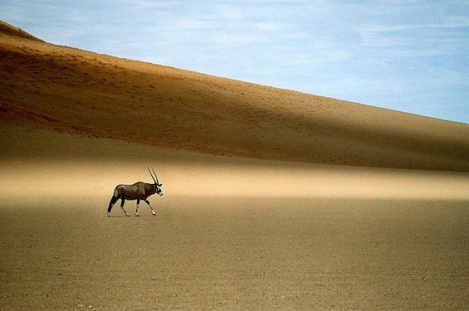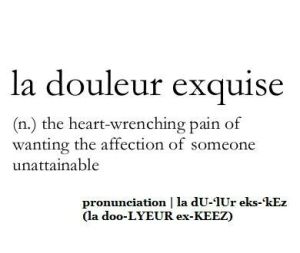A Ghazal is a type of poetry which has strict rules for rhymes and rhythm and it’s dominant background is mostly about unattainable love. It is allegedly said that the word ‘Ghazal’ was used to describe a gazelle dying of thirst. Many times it is quite difficult to understand whether the poet is writing for his/her love or to God. It is mostly written in Persian, Urdu/Hindi, Arabic. But nowadays, the ghazal has spread worldwide with a large number of English and German ghazals adding to the richness of the poetry.
I’ve tried to write a ghazal, although I’ve got almost no knowledge of poetic meters. But I’ve followed the rhyme scheme. And of course, between all these, I tried not to forget the very essence of poetry – deep feelings.
Original – In Urdu (Devanagari and Roman script):
तुम क्यों हो यहाँ?
Tum Kyon Ho Yahaan?
दिल-ए-नादान दिमाग से पूछे की तुम हो कहाँ,
कुछ दिनों बाद वे मुझसे पूछे की है वोह कहाँ?
Dil-e-naadan dimag se poochhe ke tum ho kahaan?
Kuchchh dinon baad ve mujhse poochhe ke hai woh kahaan?
वक़्त-ए-मुहब्बत पर खुशबू-ए-बाद चली,
मगर समा-ए-आरज़ू में कभी नहीं सोचा की तुम मुझे मिलो कहाँ।
Waqt-e-muhabbat par khushboo-e-baad chali,
Magar samaa-e-aarzoo mein kabhi nahin socha ke tum mujhe milo kahaan.
बादल-ए-रंज रेगिस्तान पर परेशान होकर खड़ी,
अब किसकी सुनूँ यहाँ, अब मैं लूँ रो कहाँ?
Baadal-e-ranj registaan par pareshaan hokar khadi,
Ab kiski sunon yahaan, ab mai loon ro kahaan?
समंदर-ए-दुनियावी उलझन में आकर पूछे नूर-ए-आफ़्ताब से,
असर ज़ोर का है तुम्हारा मगर तुम हो तो कहाँ?
Samandar-e-duniyavi uljhan mein aakar pooche noor-e-aaftaab se,
Asar zoor ka hai tumhara, magar tum ho to kahaan?
ख़ुदी में तो ख़ुदा भी है हाज़िर,
मगर मैं, तेरा अंजाना, ख़ुद भी हूँ कहाँ।
Khudi mein to khuda bhi hai haazir,
Magar mai, tera anjana, khud bhi hoon kahaan?
लेकिन “राज” बे-आक़िल कहता रहा आक़िबत तक,
तुमपर श्रद्धा की सज़ा-ए-राहत तुम मुझे दो, कहाँ?
Lekin “Raj” be-aaqil kehta raha aaqibat tak,
Tumpar Shraddha ki sazaa-e-raahat tum mujhe do, kahaan?
English Translation (Without rhymes, just translation):
Why Are You Here?
The innocent heart asks the mind, “Where are you”,
Later they ask me, “Where is he/she/it?” (the word ‘woh’ doesn’t specify gender and is open to interpretations).
During the moment of love, sweet wind blew,
But through the time of yearning, I never thought where I may find you.
The cloud of sadness (or the sad cloud) is standing above the desert, confused,
It asks, “Whom should I listen to now, where shall I cry now?!”
The earthly sea, in dilemma, asks the heavenly moon,
I can feel your effect on me very well, but please show yourself to me!
(It is said that) even god is found in one’s self (or self-awareness),
But I, (as) your stranger, am not myself now.
But *”Raj”, the unwise one, kept saying until his #end,
When will you give me the relief of punishment for my faith(Shraddha) in you?
*Raj is the ‘takhallus’ of the ghazal. It is a when the poet inserts his/her own name in the ghazal.
# The word ‘aaqibat’ means both end and new beginnings. It is a very interesting word and one of the many such features which makes Urdu such a poetic language.
I’ll explain this Ghazal in the next post. Thanks!

